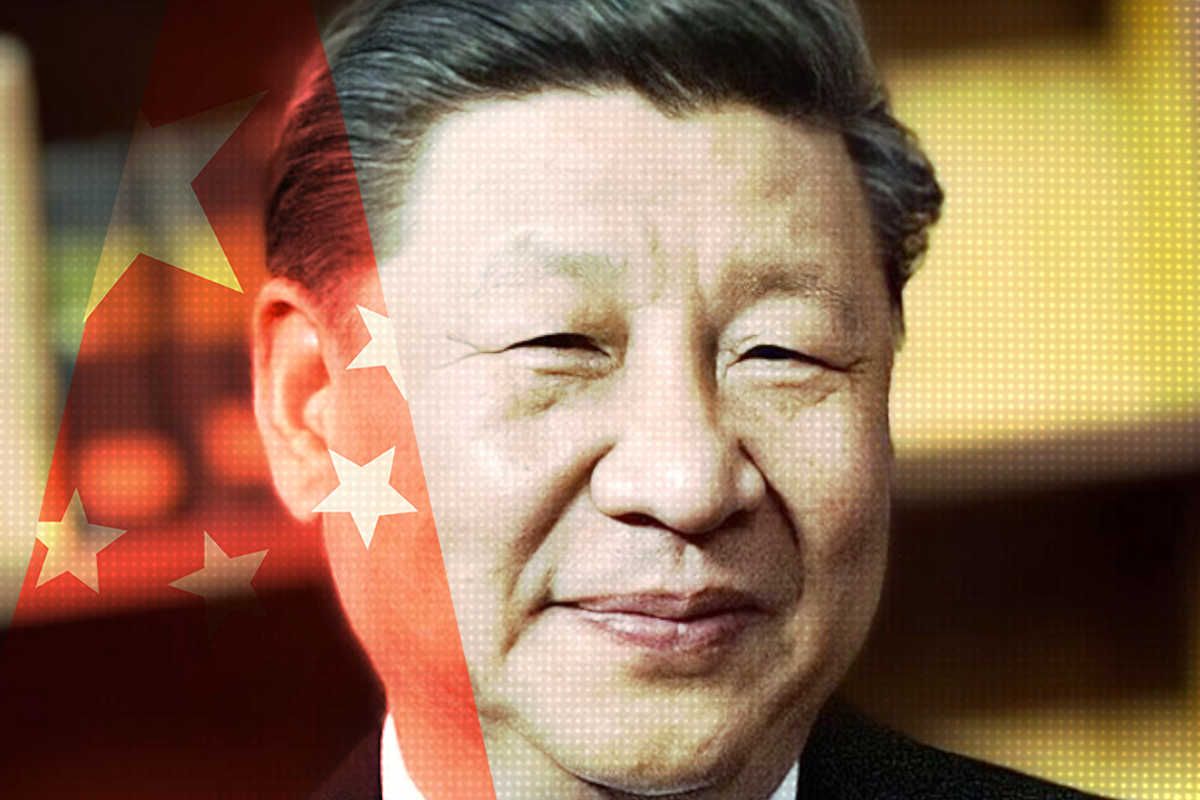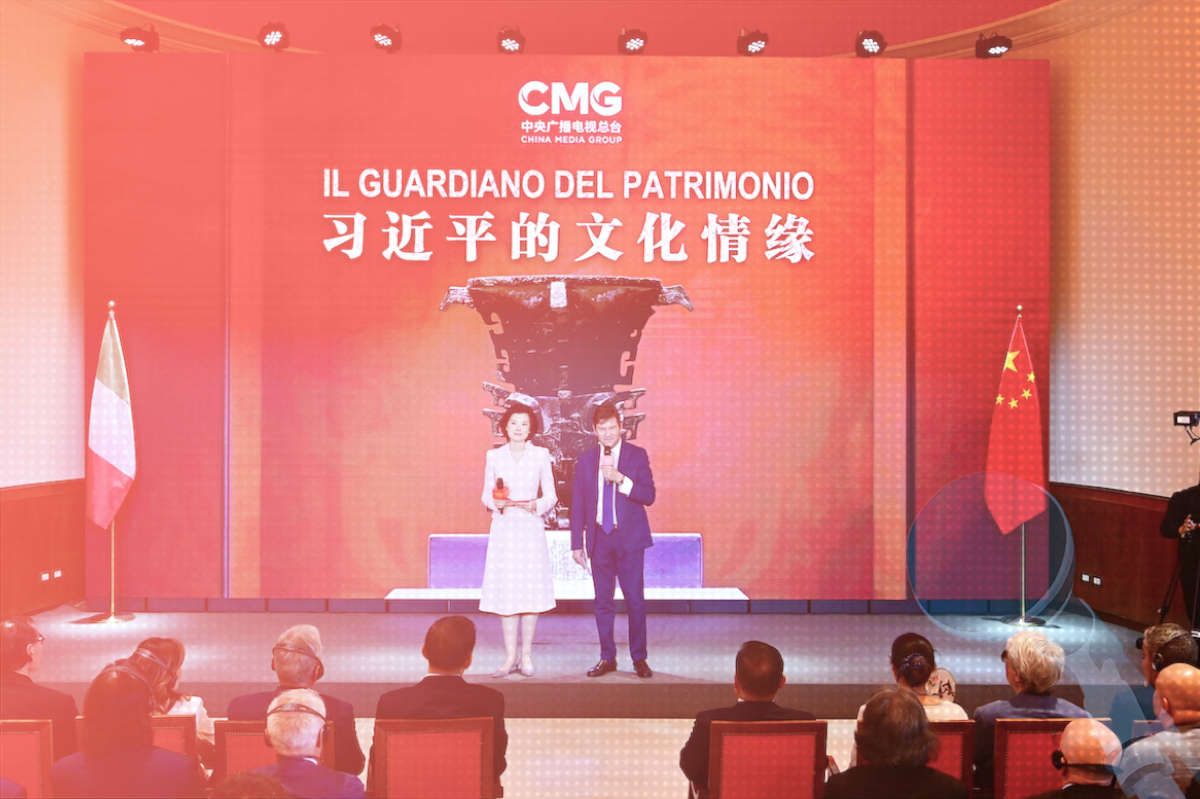We’ve written a great deal lately (here and here, for example) about the ideological struggle that seems to be going on behind the political scenes in China — a struggle, ultimately, over the direction of economic, social and political reforms pitting the so-called “liberal” right against the conservative Maoist left. Obviously, these ideological lines are not always so cut-and-dried. There are centrists no doubt, and both left and right-leaning centrists, and a great mass of the impassive and unsure. For a decent look at the background issues at stake, we recommend a recent piece in The New York Times, “Mao’s Legacy Still Divides China.”
But in what seems like a sharp leftward political turn in China in recent months, it is the liberal right that seems to be taking most of the hard knocks. Quiet chatter on the right in recent days, for example, has turned to the fate of Xin Ziling (辛子陵), a former official at the China National Defense University and well-known “liberal,” who has apparently been silenced quite vigorously by Chinese authorities.
Xin is no stranger to acts of outspokenness. He was party in October 2010 to an open letter calling for free speech and an end to censorship in China. That letter, which CMP translated into English, was signed by a number of senior CCP officials known for their reformist views, including Mao Zedong’s former secretary, Li Rui (李锐).
Not long after that letter was circulated, a lecture by Xin scheduled for a Beijing bookshop on the topic of “The Political Reform Question” was suddenly pulled due to sensitivities. In the lecture, which circulated online despite the best efforts of censors, Xin attacked those who sought to hijack the political reform debate with the outdated “theory of delimitation” — distinguishing between “proletarian” democracy and “bourgeois” democracy — which he calls a “protective amulet . . . for single-party dictatorship” handed down by Bolshevik leader Vladimir Lenin.
Xin is reportedly now under pressure for a speech called “Our Situation and Prospects” that he delivered to a forum of retired Party cadres at the the Ministry of Science and Technology. He has been prohibited from speaking, writing or “being active” for a period of six months as he undergoes scrutiny for “three major errors” he committed in the speech — including the suggestion, apparently, that Wen Jiabao is under rising pressure from Party conservatives for his persistent remarks on political reform.
The following open letter from an elderly CCP member, which has been shared over the past two days among a range of academics, journalists and liberal Party officials, calls on authorities to end the prohibitions against Xin Ziling and argues that the CCP must allow “different voices and different opinions” if it is to maintain its hold on power and accommodate the “standards of modern society.”
The letter also references a supposed remark from a high-level official in the Central Propaganda Department that has surfaced in a number of places recently, that Premier Wen Jiabao — who has insisted repeatedly in recent months that political reform is essential to China’s continued stability and prosperity — has become a “troublemaker.”
“From an Old CCP Member, a Call on the Authorities: Release Restrictions on Xin Ziling”
Ai Feng (艾风)
Recently, I saw an article online by Mr. Fan Ji (范吉) and learned about the forced silencing of Jin Ziling, about how the authorities have demanded he undergo scrutiny owing to three [alleged] major errors. He has been ordered to avoid speaking, writing or being active for a full half year. I read the speech he delivered to a forum of old cadres at the Ministry of Science and Technology and found it to be a sound and well-reasoned work. So I’d like to speak my mind a bit about this.
I too am a retired cadre. Before I had even turned 16, I joined the Chinese Communist Party when it was underground. So I have a history of more than 60 years with the Party. Now, in the capacity of an old CCP member, looking at the three errors that have been foisted on Xin, and then looking at his speech on “Our Situation and Prospects,” I believe the former is based on specious chop logic while the latter [Xin’s own speech] is theoretically sound, backed up by data and convincing. Perhaps it is precisely this strong theoretical basis and persuasiveness, this penetrative power, that has made the authorities fearful, so that they resort to this “ban” on Xin.
The first charge is that Xin Ziling advocates the capitalist road, severely going against the Four Basic Principles (四项基本原则). I won’t talk right now about how the Four Basic Principles was the new four-part formula with which Deng Xiaoping (邓小平) replaced Hua Guofeng’s (华国锋) “Two Whatevers” (两个凡是) after Deng had denounced them. Looking just from the full text of Xin’s speech, it is clear that Xin affirms that opening and reform and the present economic accomplishments have happened under the leadership of the Party, and this accords with the first of these four “whatevers” [the Four Basic Principles, namely: “Upholding the leadership of the CCP.”] As for the second [basic principle], that of remaining on the socialist path, we should admit that Deng on the socialist path and Mao on the socialist path are already quite divergent. Mao upheld public ownership and annihilated private ownership. Deng permitted the development of the private economy, of a mixed economy, and he added protections for private ownership to the Constitution. In terms of economic forms, Mao persisted in the planned economic model, while Deng promoted the market economy. Well then, as for this [basic principle] of remaining on the socialist path, are we to adhere to Mao’s path or to Deng’s? If our Party is carrying on with opening and reform, then of course we are taking Deng’s path.
Xin Ziling’s entire speech is also an affirmation of Deng’s path, and he even says: “The wisdom of Deng Xiaoping comes in these two words, ‘opening up’.” So if Xin praises Deng’s opening and reform, and affirms our present economic accomplishments, how is this a violation of the Four Basic Principles? . . . As an accomplished scholar himself, naturally he cannot simply parrot what others say. According to his profound study of Marxism, and his profound study of democratic socialism (民主社会主义), he raises the same economic theory of the primary stage of socialism that our Party itself has raised recently, which could also be understood as the “new democracy” (新民主主义) that Mao Zedong promoted but then later discarded, or which could be called social democracy (民主社会主义), or again be referred to in terms of the “new capitalism” (新资本主义) that Mao Zedong once spoke of. All of these appellations can be thought of as readings of the current economic situation and social situation in our country, and all offer affirmation and support of the Party’s basic national policy. If these readings and questionings arising from the world of theory are slapped carelessly with labels, and made out to constitute guilt, has this not pulled us back to the “ten thousand horses all muted, and one-hundred birds prevented from singing” (万马齐喑,百鸟禁声) that prevailed during the Cultural Revolution? Are we again to enforce ideological despotism (思想专制) and cultural despotism (文化专制)?
The second charge holds that Xin Ziling set leaders at odds. This is because in his speech Xin said [Premier] Wen Jiabao must not be criticized [or “isolated” or “attacked”], and he strongly advised [President] Hu Jintao against aligning with other influential power cliques to target [and isolate] Wen Jiabao. Because recently one deputy minister of the Central Propaganda Department dared say that Wen Jiabao was “a troublemaker” (麻烦制造者), which signaled a shake up. After I read this passage from Xin’s speech, I came away with the feeling that Xin’s motivation was the good of the Party. I didn’t have the merest sense that Xin was attempting to set leaders at odds by making this suggestion. This is because Xin is making this suggestion, first of all, on the basis of the lessons of history, and the way in his later years Mao Zedong targeted Zhou Enlai (了周恩来). And secondly, there are signs that [Xin Ziling’s remarks about the intention of dealing with/isolating/targeting Wen Jiabao] are factual. Even if the Party leadership has no intention whatsoever to deal with Wen Jiabao, and all of this is Xin’s own guesswork, there’s no need at all to go to war over this, leveling accusations against Xin. He could simply be cautioned to be more mindful in future speeches of the factual grounding [of his remarks] and their possible negative impact.
The third charge alleges that Xin used materials he found on the [overseas Chinese] Epoch Times website, criticizing Zeng Wei (曾伟), the son of the former vice-premier Zeng Qinghong (曾庆红), of spending a stupendous sum to purchase a home in Australia. First off, Epoch Times Online is a Falun Gong website, and secondly there are two Zeng Wei’s in Australia. How [they asked] do you have the evidence to say that the Zeng Wei who bought this expensive home is the son of Zeng Qinghong? On these two points, there is not a whole lot I can say, because I don’t know whether Xin used material from the Epoch Times, nor do I know which Zeng Wei bought the house in question. But there is one thing I am certain of in looking at the full text of Xin’s speech, and that is that his criticism of Zeng Wei is meant for the betterment of the Party, because as stage of crony capitalism definitely has already emerged in our society, and if it is allowed to proliferate this spells disaster for our country. And so Xin Ziling reminds us in this speech: “If the Chinese Communist Party wishes to maintain its hold on political power and preserve its leadership status . . . [it must] employ peaceful methods of transition to resolve the issue of crony capitalism.”
In summary, I hope the authorities do not make mountains out of molehills and mistake every bush for an enemy. I hope [they] do not take the old path of Mao Zedong, capriciously enforcing a “three bans” policy — limits on speech, writing and action — inside the Party and in larger society by means of organizations or public security means. For the Party to achieve modernization in leading the nation, the Party must first steadily modernize itself, gradually transforming itself from a violent Party of revolution, a Party not allowing different voices and different opinions, to a ruling party suiting the standards of modern society. From leading ideologies to organization structure, to various policies and measures, the ideas and conduct of our leaders must first accord with the demands of modernization. If this is done, our nation with prosper! The people will prosper!
Ai Feng (艾 风)
May 7, 2011
[Frontpage photo from Hong Kong’s Open Magazine.]





















